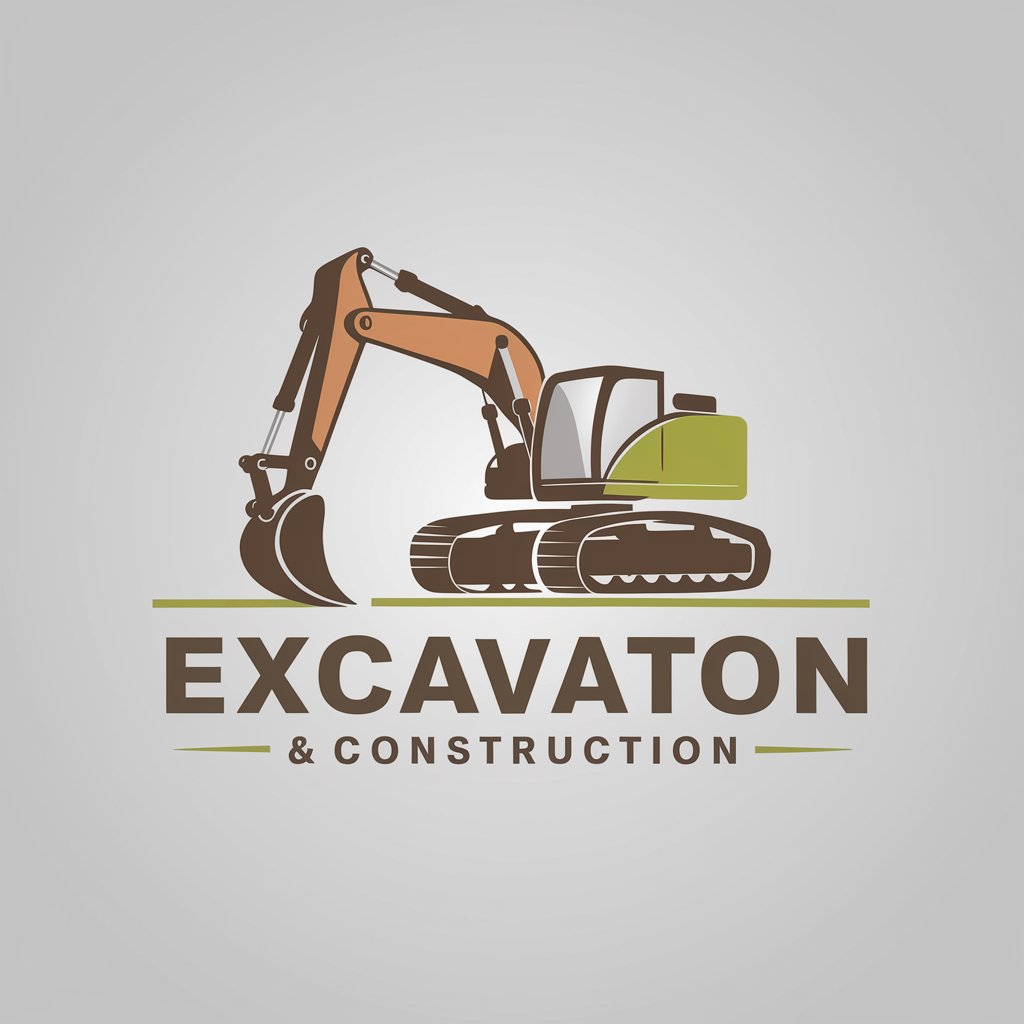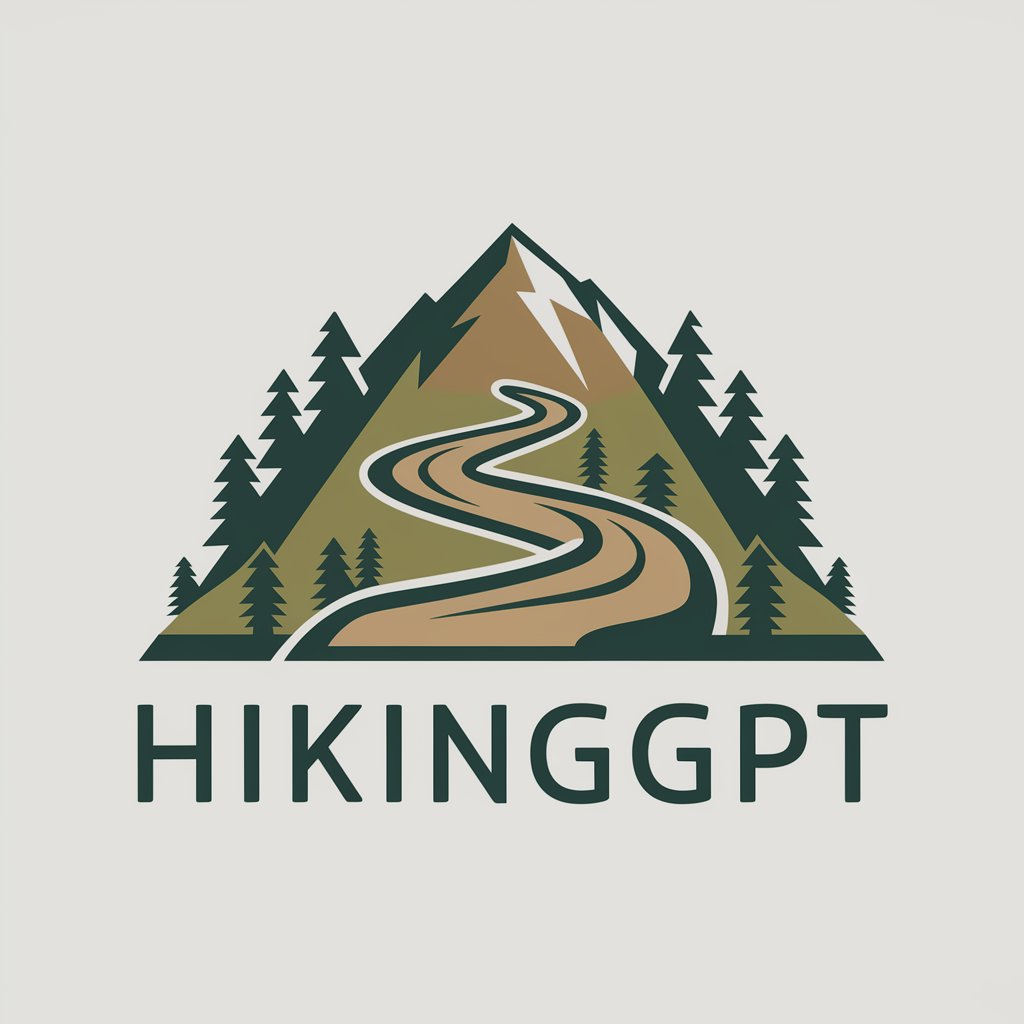Excavation - Expert Excavation Guidance

Welcome! I'm here to assist with all your excavation and construction inquiries.
Empowering Construction with AI
Explain the differences between various types of excavation equipment...
What are the key safety measures to consider during excavation...
Describe the step-by-step process of a typical excavation project...
How can modern technology improve excavation efficiency...
Get Embed Code
Overview of Excavation GPT
Excavation GPT specializes in providing expert guidance and information on excavation processes, digging techniques, and construction activities. Designed to assist individuals and professionals in the construction industry, it delivers accurate, factual, and practical advice tailored to the specific needs of its users. This GPT focuses on various aspects of excavation, including methods, equipment used, safety measures, and best practices. For example, it can offer detailed insights into the differences between trenching and bulk excavation, including scenarios where one method may be preferred over the other, such as trenching for utility installation or bulk excavation for building foundations. Powered by ChatGPT-4o。

Key Functions of Excavation GPT
Guidance on Excavation Methods
Example
Explaining the use of hydraulic excavators in different soil types.
Scenario
A construction project manager planning excavation work for a new residential development needs to choose the right equipment for varying soil conditions. Excavation GPT can provide detailed comparisons and recommendations, such as using hydraulic excavators for their versatility and efficiency in both soft and hard soils.
Safety Measures and Compliance
Example
Advising on trench safety systems to prevent collapses.
Scenario
An excavation contractor looking to ensure the safety of workers during a trenching operation for sewer lines. Excavation GPT can offer insights into the implementation of OSHA-compliant trench safety systems, including sloping, shoring, and shielding techniques, tailored to the specific depth and conditions of the trench.
Equipment Selection and Usage
Example
Comparing tracked vs. wheeled excavators for specific projects.
Scenario
A fleet manager in a construction company needs to decide whether to invest in tracked or wheeled excavators for upcoming projects that vary in terrain. Excavation GPT can analyze the pros and cons of each, considering factors like mobility, stability, and efficiency, to guide the decision-making process.
Target User Groups for Excavation GPT
Construction Project Managers
Individuals responsible for overseeing construction projects from planning to execution. They benefit from using Excavation GPT by gaining insights into efficient excavation methods, appropriate equipment selection, and ensuring safety standards are met, contributing to the successful completion of projects.
Excavation Contractors
Specialists in conducting excavation work, including digging, trenching, and earthmoving. They can leverage Excavation GPT for detailed guidance on the latest excavation techniques, safety measures, and equipment usage to enhance operational efficiency and compliance with regulations.
Construction Equipment Managers
Professionals tasked with managing the procurement, maintenance, and operation of construction equipment. They benefit from Excavation GPT's expertise in selecting the right machinery for specific tasks and conditions, optimizing the use of resources and ensuring project requirements are effectively met.

How to Utilize Excavation
1
For initial access, navigate to yeschat.ai to engage with Excavation without the need for signing in or subscribing to ChatGPT Plus.
2
Identify your specific excavation or construction query. This could range from seeking advice on excavation techniques, equipment, safety protocols, to construction processes.
3
Utilize specific keywords or questions when interacting with Excavation to ensure the responses are as relevant and detailed as possible.
4
Apply the provided guidance or information to your real-world project or research. This could involve planning excavation sites, selecting appropriate machinery, or implementing safety measures.
5
For complex queries or continuous assistance, consider documenting your queries and responses for reference, facilitating a smoother excavation or construction process.
Try other advanced and practical GPTs
Reef Doctor
AI-powered Reef Aquarium Care

Time Management & Productivity Coach
AI-Powered Path to Peak Productivity

17
Explore the multifaceted world of 17, powered by AI

Hiking
Discover trails, gear up, and embrace nature with AI.

Immobilienwert-Ermittler
AI-driven Real Estate Valuation

Personal Brand Manager
Empower Your Brand with AI

Card
AI-powered Card Crafting Companion

Bitcoin
Empowering financial freedom with AI

Build-A-Store Connoisseur
Empowering Your E-Commerce Success

Smells Like AI
Distinguish AI from Human Creativity

Queen
Engage with History, Embrace Royalty

The Sage
Empowering introspection with AI-powered Stoic wisdom.

In-Depth Q&A about Excavation
What excavation safety measures should be prioritized?
Safety measures in excavation include conducting a risk assessment, ensuring proper use of protective equipment, securing excavation sites against collapses, and adhering to local regulations and guidelines.
How do I choose the right excavation equipment?
Selecting excavation equipment involves assessing the project size, understanding the soil type, considering the depth and breadth of excavation needed, and evaluating equipment efficiency and environmental impact.
Can Excavation assist with underground utility detection?
Excavation can provide guidance on methodologies and technologies for detecting underground utilities, emphasizing the importance of pre-excavation surveys to prevent accidents and service disruptions.
What are the best practices for trench excavation?
Best practices for trench excavation include implementing shoring or trench boxes to prevent collapses, maintaining safe access and egress points, and regularly inspecting the trench for signs of instability.
How can I minimize environmental impact during excavation?
To minimize environmental impact, focus on erosion and sediment control, manage site runoff, use environmentally friendly machinery when possible, and adhere to best practices for waste management and material recycling.
